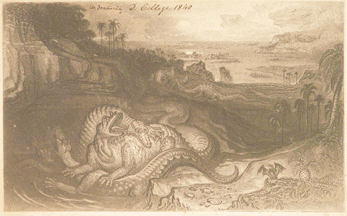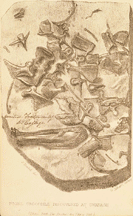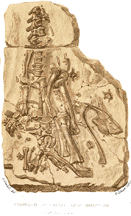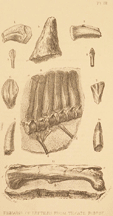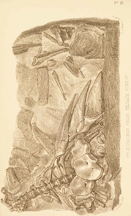Titlepage
Dedication
PREFACE
vii
viii
ix
x
LECTURE 1 - INTRODUCTORY REMARKS: A comprehensive view of the actual
physical condition of the surface of our planet, and of the nature and
results of the principal agents by which the land is disintegrated and
renewed.
001
002
003
004
005
006
007
008
009
010
011
012
013
014
015 016
017
018
019 020
021
022
023
024
025
026
027 028
029
030
031
032
033
034
035
036
037
038
039
040
041
042
043
044
045
046
047
048
049
050
051
052
053
054
055
056
057
058
059
060
061
062
063
064
065
066
067
068 069
070
071
072
073 074
075
076
077
078
079
080
081
082 083
084
085
086
087
088
089
090
091
092
093
094 095
096
097
098
099
100
101
102
103
104
105
106
107
108
109
110
111
112
[011] although it might have been
expected that, all other circumstances being equal, the same animals
and plants would have been found in places of like climate and
temperature, this identity of distribution does not exist. When
America was first discovered, the indigenous quadrupeds were all
dissimilar to those of the old world.
... The distribution of vegetable life ... presents many anomalies. It
appears that vegetable creation took place in different centres, each
having been the focus of a peculiar genus or species; for many plants
have a local existence, and vegetate naturally in one district alone.
[013] There is an internal source of heat, the cause of which has not
yet been determined, but is probably connected with the original
constitution of our planet. [radioactive decay, discovered in the early
1900s -- dcb].
LECTURE II. The enduring monuments of nature - from the coins of
brass and silver, to the imperishable medals on which the past events
of the globe are inscribed. Extinct animals.
113
114
115 116
117
118
119 120
121
122
123
124
125
126
127 128
129
130
131
132
133
134
135
136
137
138
139
140
141
142
143
144
145
146
147
148
149
150
151
152
153
154
155
156
157
158
159
160
161
162
163
164
165
166
167
168 169
170
171
172
173 174
175
176
177
178
179
180
181
182 183
LECTURE III. Classification of geological strata and fossils.
184
185
186
187
188
189
190
191
192
193
194 195
196
197
198
199
200
201
202
203
204
205
206
207
208
209
210
211
212
213
214
215 216
217
218
219 220
221
222
223
224
225
226
227 228
229
230
231
232
233
234
235
236
237
238
239
240
241
242
243
244
245
246
247
248
249
250
251
252
253
254
255
256
257
258
259
260
261
262
263
264
265
266
267
268 269
270
271
272
273 274
275
276
277
278
279
280
281
282 283
284
285
286
LECTURE IV
287
288
289
290
291
292
293
294 295
296
297
298
299
300
301
302
303
304
305
306
307
308
309
310
311
312
313
314
315 316
317
318
319 320
321
322
323
324
325
326
327 328
329
330
331
332
333
334
335
336
337
338
339
340
341
342
343
344
345
346
347
348
349
350
351
352
353
354
355
356
357
358
359
360
361
362
363
364
365
366
367
368 369
370
371
372
373 374
375
376
377
378
379
380
381
382 383
384
385
386
387
388
389
390
391
392
393
394 395
396
397
398
399
400
401
402
403
404
405
406
407
408
409
410
411
412
FOOTNOTES
413
414
415 416
417
418
419 420
421
422
423
424
425
426
427 428
A, (p 21) - The Surface of the Moon 413
B. (p 60) - The Lake of the Solfatara 414
C. (p 62) - Caverns 416
D. (p 62) - Weyer's Cave 417
E. (p 80) - Reent Formation of Sandstone 419
F. (p 95) - Lithodomi, or Boring Mollusca which have the power of
perforating rocks. 421
G. (p 96) - Observations on the Temple of Seraphis at Puzxzoli near
Naples 422
H. (p 325) - Mr. Reade's observations 424
I. (p 328) -
Agassiz's Classification of Fishes. 424
K. (p 339) - A Tabular Arrangement of the Fossil Fishes in the
Mantellian Museum at Brighton 425




